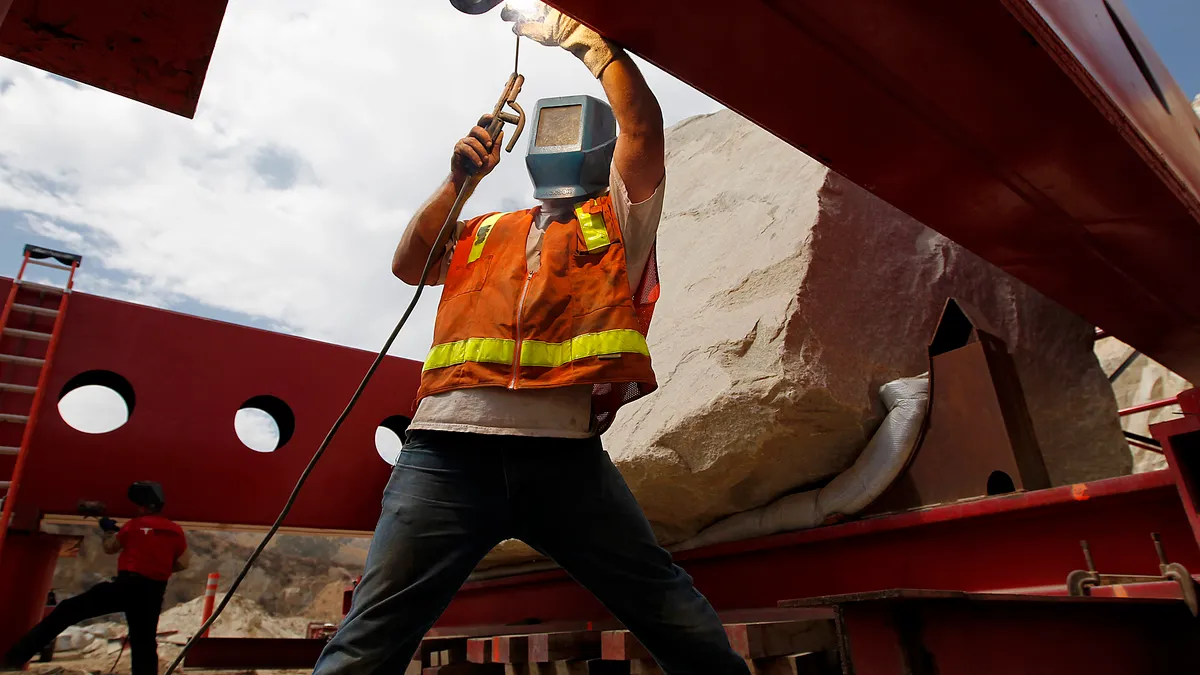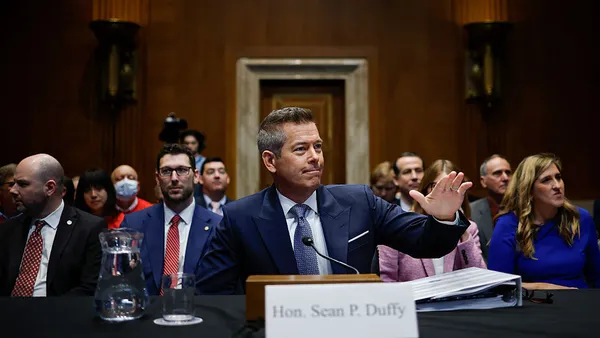Dive Brief:
- Nevada Gov. Steve Sisolak signed several new bills into law this week, including two construction-related regulations — one that raises the prevailing wage for workers on some public construction projects and another that removes restrictions on union-affiliated contractors by public agencies.
- Assembly Bill 136 rolls back the prevailing wage threshold contract amount for public projects to $100,000 from its current level of $250,000 and restores the prevailing wage for workers on public school projects to 100%. The previous law had those workers earning only 90% of the prevailing wage. Senate Bill 231 repeals a previous prohibition on contractors entering into agreements with trade unions and abiding by other labor-related restrictions while they are working on public projects.
- Both pieces of new legislation targeted laws passed by the state's Republican-controlled 2015 legislature, a move that Sisolak, on Twitter, said would "right anti-worker wrongs."
Dive Insight:
Some business groups and contractor organizations consider a prevailing wage requirement to be anti-competition and believe that the free market should play a major role in deciding rates of pay beyond minimum wage. The anti-prevailing wage position is also often a part of pro-business agendas, with wage-protection detractors arguing that these regulations are bad for state and local economies because they discourage companies from wanting to do business in those locations. Some groups have also labeled prevailing wage laws as money-wasters.
In 2016, opponents of West Virginia's prevailing wage laws said that the state could build five schools for the price of three if such pay requirements were eliminated. And so they were, but the results, according to a recent report from the University of Missouri-Kansas City and the Midwest Policy Institute, have not supported that position.
Since the prevailing wage was eliminated in West Virginia, the groups found that pay rates have dropped for many, if not most, construction workers. In addition, out-of-state contractors have been awarded more work, there have been more construction workplace injuries and the number of apprenticeship training opportunities has decreased. The Midwest Policy Institute also determined that the cost savings promised to West Virginians have yet to materialize.
These results, according to "The Impact of Repealing West Virginia's Prevailing Wage Law," reinforce the groups' other research, which indicates that prevailing wage requirements lead to increased productivity, higher wages for construction workers and enhanced safety on the worksite.














